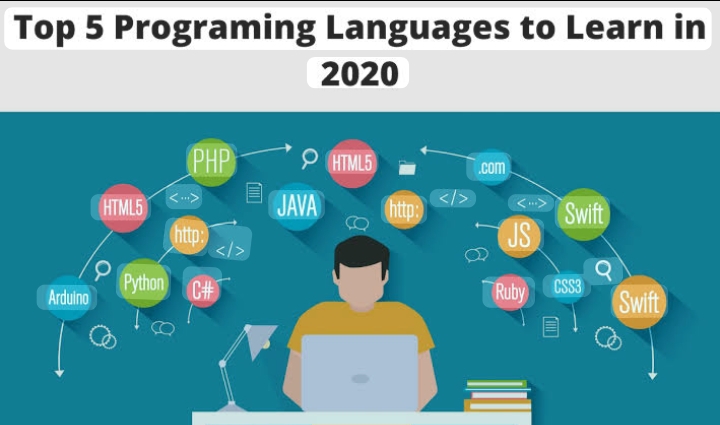
Programming languages are at the heart of every technological innovation. Whether you’re an aspiring developer or an experienced coder looking to expand your skills, choosing the right language to master can define your career trajectory. In this blog, we explore the top five programming languages to learn in 2025, based on their versatility, demand, and potential for future growth.
1. Python: The Swiss Army Knife of Programming
Overview
Python is consistently ranked among the most popular programming languages globally. Known for its simplicity and readability, it has become a favorite for beginners and professionals alike. Its applications span from web development to machine learning and artificial intelligence.
Why Learn Python?
- Ease of Use: Python’s syntax is clean and easy to understand, making it ideal for new programmers.
- Extensive Libraries: Libraries like NumPy, Pandas, and TensorFlow enable tasks ranging from data analysis to building AI models.
- Diverse Applications: Used in web development (Django, Flask), data science, AI, scientific computing, and automation.
Future Potential
Python’s role in emerging technologies like AI, data science, and automation ensures its relevance in the coming decades. Its adaptability and vast community support make it a must-learn language.
2. JavaScript: The Backbone of the Web
Overview
JavaScript powers the modern web, enabling dynamic and interactive experiences. Beyond frontend development, it now dominates backend development, mobile app creation, and even game development.
Why Learn JavaScript?
- Ubiquity on the Web: Every major website relies on JavaScript for interactivity.
- Rich Ecosystem: Frameworks like React, Angular, and Vue.js simplify frontend development. Node.js expands its capabilities to server-side programming.
- Growing Demand: Essential for creating single-page applications, progressive web apps, and real-time web platforms.
Future Potential
As the web evolves, so does JavaScript. Its versatility across platforms ensures its position as a cornerstone of modern software development.
3. Java: A Reliable Choice for Enterprise Applications
Overview
Java has been a mainstay in the programming world for decades. Known for its stability and scalability, it’s the go-to language for enterprise-level software, Android apps, and backend systems.
Why Learn Java?
- Platform Independence: Java’s “write once, run anywhere” philosophy ensures compatibility across devices.
- Robust Ecosystem: Frameworks like Spring and Hibernate streamline enterprise application development.
- Industry Trust: Favored by industries like finance, healthcare, and e-commerce for building secure and scalable solutions.
Future Potential
Despite competition from newer languages, Java remains relevant, especially in enterprises and industries requiring reliable backend systems.
4. C#: A Powerhouse for Game and App Development
Overview
C# combines the performance of low-level languages with the simplicity of modern syntax. Created by Microsoft, it is widely used in game development, Windows applications, and cloud-based services.
Why Learn C#?
- Game Development: C# is the language behind the Unity game engine, used for creating indie hits and AAA games alike.
- Versatility: Useful for desktop, web, and mobile applications, particularly with the .NET framework.
- Growing Community: Supported by a thriving community and robust tools like Visual Studio.
Future Potential
The growth of Unity and the .NET ecosystem ensures C# will remain a valuable language for years to come, particularly for game developers and app creators.
5. Rust: The Rising Star of Systems Programming
Overview
Rust is a modern systems programming language that emphasizes safety and performance. It’s often seen as a safer alternative to C and C++, gaining traction in industries that demand high-efficiency software.
Why Learn Rust?
- Memory Safety: Rust prevents common bugs like null pointer dereferences and data races.
- Performance: Offers low-level control without sacrificing safety.
- Diverse Applications: Used in browser development (e.g., Mozilla’s Servo), blockchain systems, and high-performance tools.
Future Potential
Rust’s focus on security and efficiency positions it as a key language for the future of systems programming, especially in areas like Web Assembly and blockchain.
Honorable Mention
- Kotlin: A rising star for Android development, preferred over Java for new projects.
- Swift: Apple’s language for iOS and macOS app development.
- Go (Golang): Popular in cloud computing and microservices.
- SQL: Essential for database management and querying.
Conclusion
The programming landscape is vast, and no single language fits all needs. Python, JavaScript, Java, C#, and Rust are excellent choices to stay competitive in 2025. Whether you aim to work in data science, web development, or game creation, these languages offer the tools and community support needed to succeed. Choose the language that aligns with your career goals and interests, and take the first step toward mastering the art of programming.
Leave a Reply